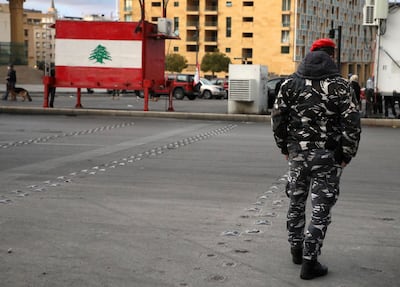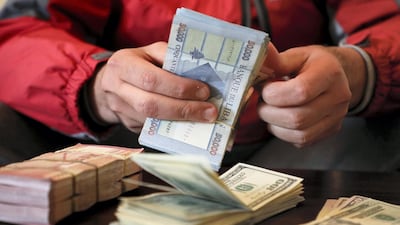In 2015, the 2030 Agenda for Sustainable Development affirmed its commitment to “transforming the world” with a set of universal goals to secure the health of the planet and ensure that its inhabitants enjoyed peace and prosperity. It envisioned a world in which poverty and hunger ceased to exist, whose societies were just and whose natural riches were no longer subjected to relentless plunder. The meeting brought together governments, international organisations, the private sector and civil society in a determined global engagement. At the time, leaders recognised that implementing the agenda would require stronger resource mobilisation at all levels.
Six years after this historic pledge, we continue to fall short of making the necessary investments to secure the future that we want. In some respects, we have veered off-track. The pandemic made things worse, with governments undertaking colossal levels of public spending to bring the crisis under control and stave off economic collapse. Mobilising sufficient financial resources for implementing the 2030 Agenda remains a major challenge and now the pandemic threatens to reverse previously hard-won progress.
While all countries are in the same storm, not all are in the same boat. Developing countries, particularly in our region, cannot afford the same social safety nets, medical equipment and vaccines as developed nations. Lebanon’s crisis is an example of what can happen when a nation collapses because of weak governance and widespread corruption.
The scale of these challenges is vertiginous. Getting back on track to meet sustainable development goals will require robust financial mobilisation. We will need to curb illicit financial flows (IFFs) that arise from tax evasion, money laundering and corruption. The magnitude of resources that the world could gain by combatting IFFs is enormous. As much as 10 per cent of the world’s GDP might be held in offshore financial assets. An estimated $7 trillion of private wealth is squirrelled away in secret jurisdictions. Fortunes as significant as this could speed the world on its way to reaching developmental goals.
IFFs represent a double theft: an unfair expropriation of funds that also rob billions of a better future. Taking action to recover hidden assets could reduce inequality and improve peoples’ well-being. It could give developing countries the ability to provide citizens with basic social services, such as adequate water, sanitation, electricity, healthcare and housing. IFFs are a systemic problem that require a systemic solution.
The UN’s High-Level Panel on International Financial Accountability, Transparency and Integrity for achieving the 2030 Agenda (FACTI) was convened on 2 March 2020. The panel was tasked with making evidence-based recommendations on how to close gaps in the international financial system.

The panel's report lists 14 recommendations to cement financial integrity for sustainable development. They propose an “ecosystem” approach, based on values, policies and institutions, which mandates greater transparency and accountability and more co-operation at national and global levels. It reviews existing mechanisms and institutions, identifying flaws and providing recommendations for further action by member states.
The report recommends strengthening measures in place to identify owners of suspect assets, as well as those for seizing illegal resources. Transparency should be extended to public contracts and public procurement by creating a central register of beneficial owners and eventually of assets at the international level. Recommendations also include boosting tax transparency by having all private multinational corporations publish accounting and financial information on a country-by-country basis. Fairness could be increased by taxing multinational corporations based on global profit. This will require the creation of an impartial mechanism to resolve international taxation disputes under a UN tax convention.
Further proposals suggest greater support to for civil society and whistleblowers, more international information exchange and finally the strengthening of certain countries’ administrative capacities to boost good governance.
These recommendations represent an opportunity for the various Middle Eastern countries that have been devastated by corruption, weak economies, war, social unrest and the decades-long theft of their public assets. Implementing appropriate policies to strengthen accountability, ensure financial integrity, fight corruption and recover stolen assets — so that they can be reinvested in sustainable development goals — will foster development and build a trusting relationship between the state and citizens.
This process will be filled with numerous obstacles, which is why we must start working on it now. The first step should be ensuring independence of judiciaries, given that biased ones are a stumbling block for legal accountability. The second should be to amend regulations that are not fit for purpose.
It goes without saying that this will require a great degree of political will from governments. Embracing reforms could be politically difficult. At the international level, a lot of work will be necessary in order to reach a shared understanding of the nature of the challenges ahead and the best ways to resolve them, as well as how to go about driving this change.
Particular attention should be given to the countries that for decades have been ruled by kleptocrats with total impunity. Leaders of this kind have enriched themselves and their relatives and cronies at the expense of their citizens’ basic rights. They have full control of judicial circuits and protect themselves from prosecution. They persecute and kill whistle-blowers, sabotage investigations, control the government and parliament and intimidate or close down independent media. In Lebanon, for instance, neither the unprecedented popular uprising of October 2019, nor the terrible and devastating explosion that rocked Beirut on August 4 have caused any changes to the nation’s political scene. The country of the Cedars continues its steady descent into chaos.
Rules and regulations alone will not produce equitable and sustainable development outcomes. There must also be willing acceptance and determination to apply and enforce them, with continuing review of how they are implemented. This is a global problem and a problem for all.
Karim Daher is a FACTI panellist and international lawyer and lecturer on tax law and public finance


